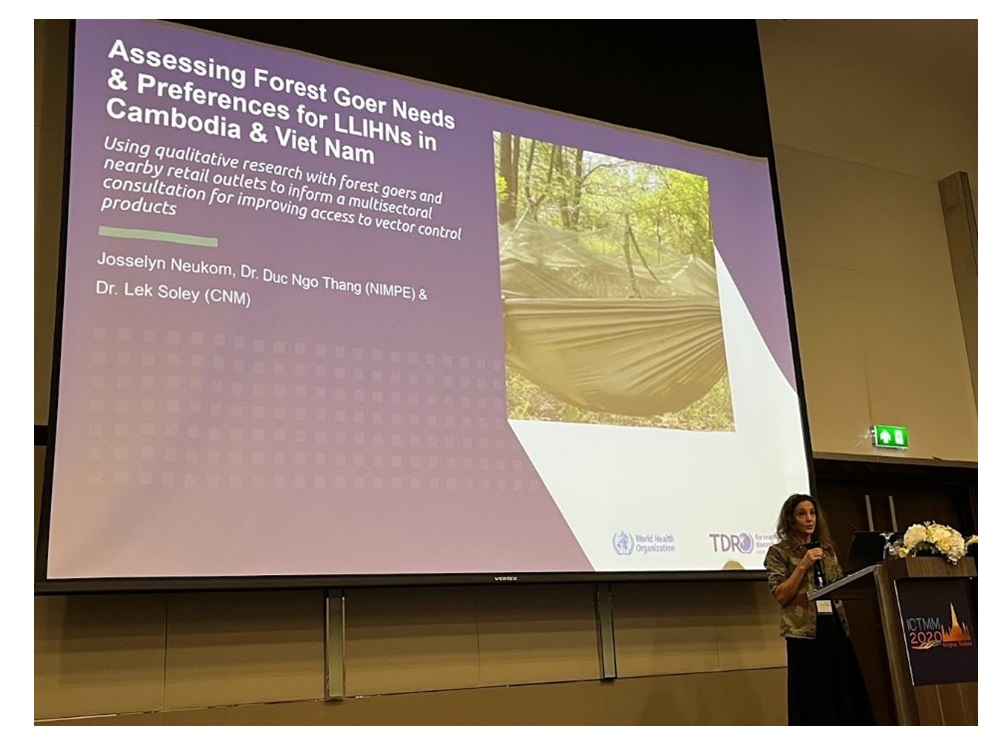Jointly supported by TDR and the Swiss Tropical and Public Health Institute (Swiss TPH), a symposium on malaria in mobile and hard-to-reach populations was held at the 20th International Congress for Tropical Medicine and Malaria (ICTMM2020) in Bangkok, Thailand (24–28 October 2022). It provided a forum for discussions on how national malaria control programmes in different settings are facing the challenges posed by mobile and hard-to-reach populations.
Infectious diseases disproportionately affect the more deprived and vulnerable sections of society, including mobile and hard-to-reach populations having little or no access to health facilities (such as geographically remote communities). These populations have different characteristics based on their environmental and occupational exposure to infective agents, the causes and pattern of their mobility, and their remoteness. These different characteristics have varying consequences – especially relating to the health situation and access to health services and facilities.
Inclusion of mobile and hard-to-reach populations into national malaria control programmes presents challenges, such as access to rapid diagnostics and treatment, and requires context-dependent approaches and innovations. “Addressing the needs of these populations is not just a matter of equity (‘to leave no one behind'), but an epidemiological necessity,” says Dr Florence Fouque, TDR’s focal point for vectors.
 The main objective of the symposium was to share experiences and lessons learned from innovative approaches to malaria control and prevention in mobile and hard-to-reach populations. It provided the forum for discussions on how national malaria control programmes in different settings are facing the challenges posed by these populations, what innovative solutions are being tested, how these are being deployed, and what remains to be addressed.
The main objective of the symposium was to share experiences and lessons learned from innovative approaches to malaria control and prevention in mobile and hard-to-reach populations. It provided the forum for discussions on how national malaria control programmes in different settings are facing the challenges posed by these populations, what innovative solutions are being tested, how these are being deployed, and what remains to be addressed.
The discussions will help to better understand gaps and needs in research and capacity building for malaria control in mobile and hard-to-reach populations and will also help to design potential next steps together with stakeholders.
The symposium was well attended and clearly highlighted concerns about the challenges posed by mobile and hard-to-reach populations for control programmes (in particular, in settings targeting malaria elimination) and raised awareness of new ways to address the challenges. A report on the meeting is planned to be developed over coming months.
For more information, please contact Dr Florence Fouque

